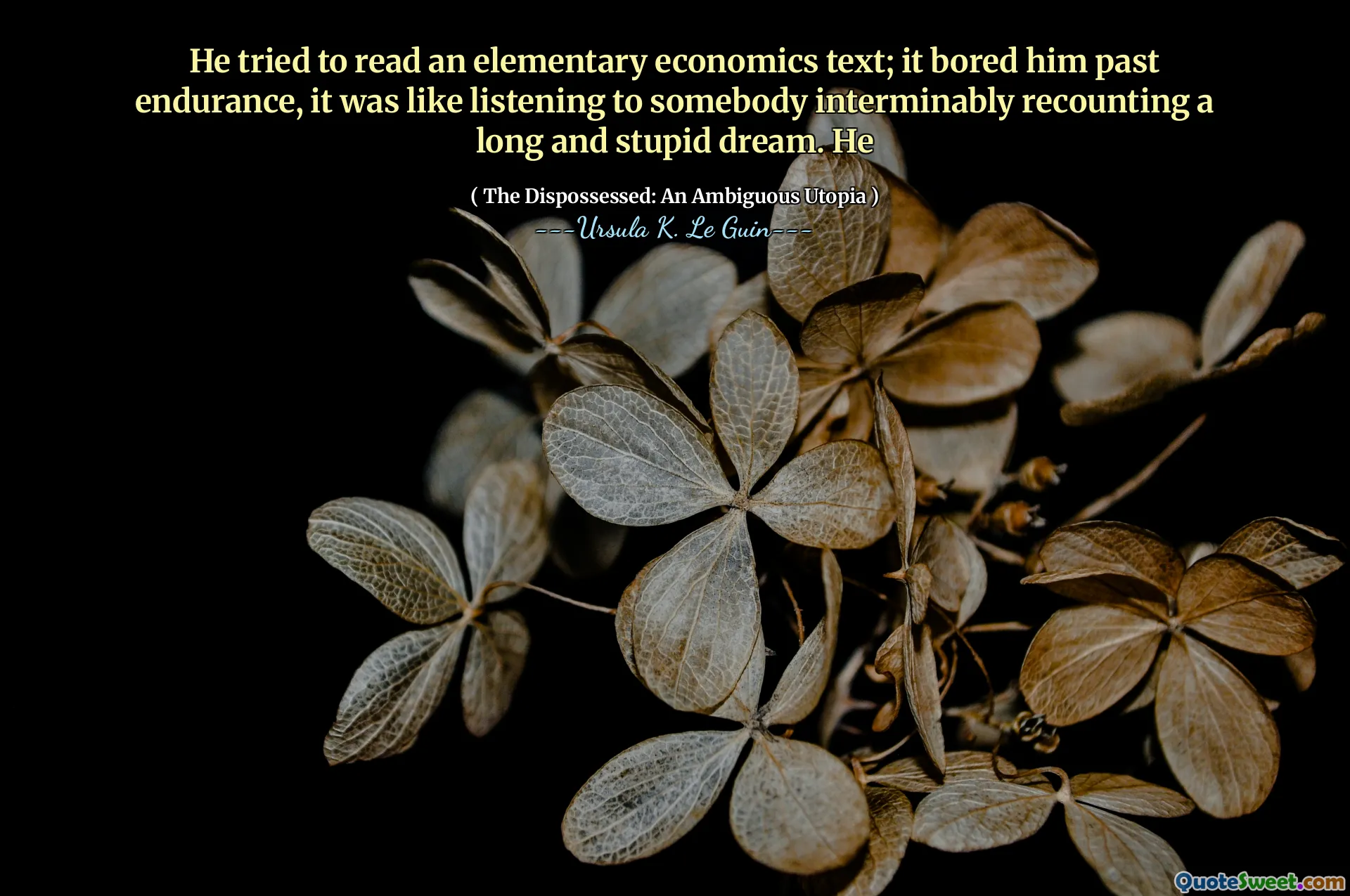
He tried to read an elementary economics text; it bored him past endurance, it was like listening to somebody interminably recounting a long and stupid dream. He
This quote resonates deeply with the experience of confronting bureaucratic or overly technical language that feels disconnected from genuine life and passion. The comparison of an elementary economics text to "listening to somebody interminably recounting a long and stupid dream" vividly captures the sensation of tedium and frustration that comes when a subject is presented in a way that feels detached and uninspired. The narrator’s reaction highlights how certain modes of communication, especially those heavy with jargon or stripped of relatable context, can alienate readers rather than educate or engage them.
From a broader perspective, this quote touches on the accessibility of knowledge. Economics, often perceived as a dry or complex discipline, can sometimes be presented in ways that fail to convey its real-world relevance or excitement. The metaphor of a "stupid dream" is also quite evocative—it suggests not only boredom but a futile, meaningless telling that leaves the listener or reader disconnected. This disconnection is significant given the importance of economics in shaping societies and policies; if people cannot relate to or find meaning in its foundational texts, democratic participation and informed debate are hindered.
Additionally, the author Ursula K. Le Guin, known for her thoughtful explorations of society and human nature, may be using this moment to critique how certain knowledge systems are constructed. The frustration expressed in the quote points to a desire for more inclusive, human-centered approaches to learning and understanding, perhaps those that invite imagination, critical thinking, and emotional engagement. The reader’s exasperation becomes a subtle invitation to question how knowledge is conveyed and to seek ways to make it resonant and vital rather than exhausting and alienating.






